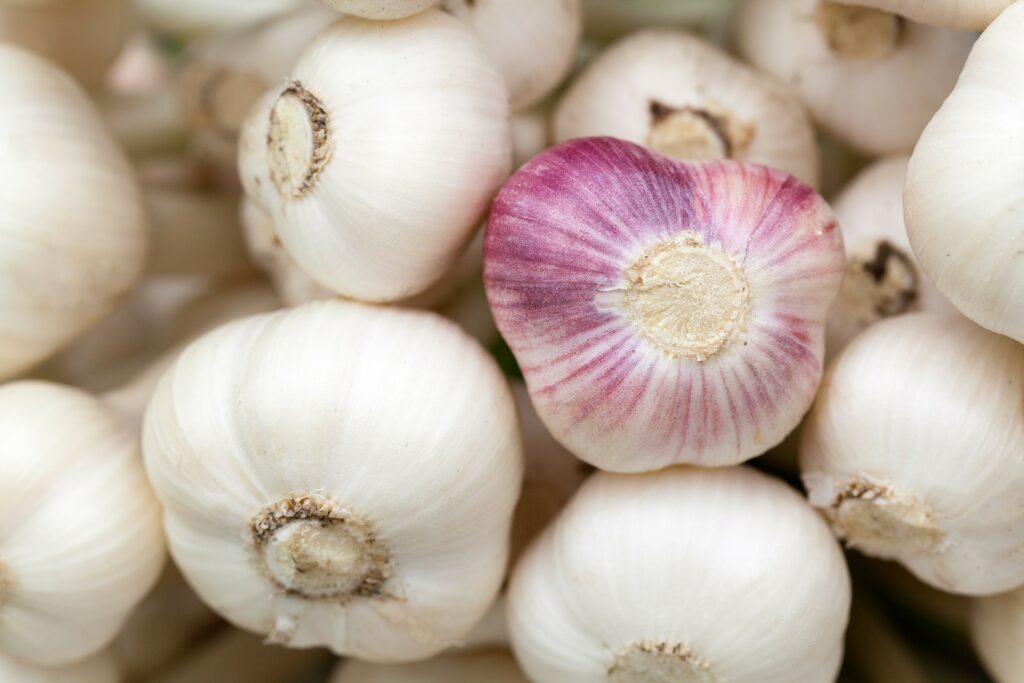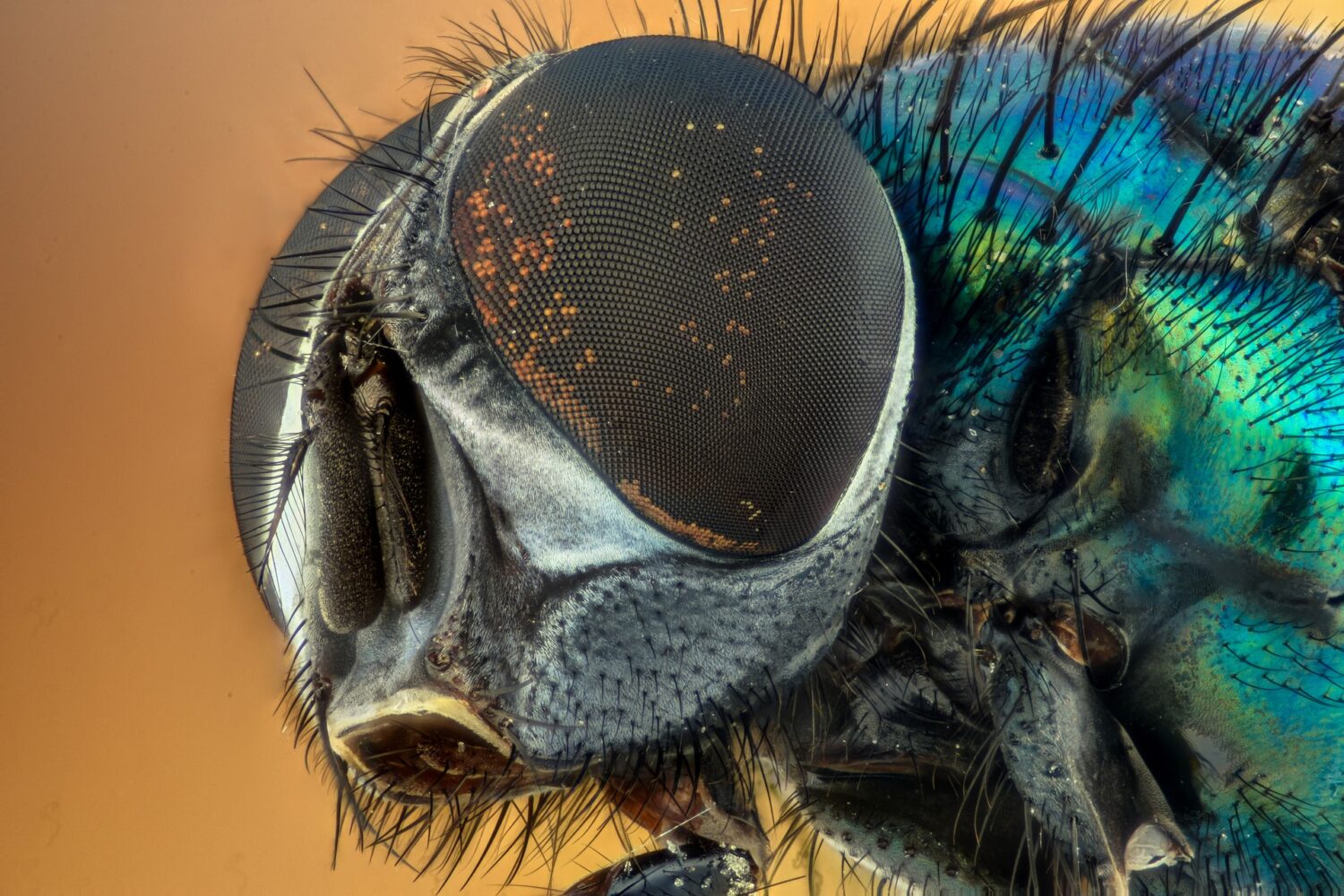With the warmer weather comes one unavoidable and often irritating nuisance: it’s fly season, fellow horse people!
The tiny winged equestrian enemies are hatching from their cocoons left and right of us, which got me thinking about the best fly and tick control methods for horses. What fly control products and methods are scientifically proven to be effective?
What’s Proven to Repel Flies & Ticks
The first step in repelling any flies is identifying what kind they are. Typically farms attract a wide range of critters and insects, including the common house fly and blue bottle fly.
Being based in Central New Jersey, ticks are another ever-present enemy for both humans and our horses. As a common carrier of Lyme disease, they’re something we’re always guarding against so we’ll add them into the list of “critters I don’t ever feeling like dealing with.”
Let’s cut right to the chase — there are a few chemicals that are proven to repel and kill most flies and ticks. They include:
- DEET – Found in many commercial fly and bug sprays, DEET is an effective repellent of flies and ticks, however it’s often been the subject of health debates even though it is the most commonly used repellent in the world.
- Pyrethrin – A naturally occurring botanical insecticide and repellent, a member of the pyrethroid family, that is extracted from blossoms of the chrysanthemum plant, which is predominately found in Africa and India.
- Permethrin – This synthetic insecticide and member of the pyrethroid family is designed to replicate natural pyrethins, which are also highly toxic to cats but common in many fly control products.
My go-to spray of choice is Pyranha Wipe N’ Spray. It smells like a lemon-y perfume and contains a coat conditioner in the form on lanolin, and I’ve watched it go to work on flies season after season.
The biggest downside to chemical ingredients is obvious: what I don’t want to use chemicals and want to use a more natural repellent?
Natural Fly Repellents
The key word here is understanding the difference between a repellent and an insecticide. Most insecticides are also repellents, but while insecticides are effective in killing insects after they’re ingested, repellents are designed to repel, not eliminate. Natural repellents boast their lack of chemicals and plant-based power, relying instead on blends of essential oils to ward off the bugs. Those oils commonly include: cedarwood, cinnamon, citronella, clove, eucalyptus, lemongrass, neem, peppermint, rosemary, and thyme.
In my personal experience I’ve never had any luck with all natural repellents, even though I’m probably making my own DIY experimental batch tonight, especially when it comes to fighting off the ticks.
Just because I haven’t seen it work doesn’t mean that natural repellents aren’t effective. In the past decade there have been some promising studies by the US National Library of Medicine that show the effectiveness of lemongrass oil in repelling stable flies and lemon eucalyptus repelling mosquito within the first day of application. After the first day the effectiveness dropped dramatically.
Another alternative method of controlling fly populations is a product known as Fly Predators. Fly Predators are a proprietary combination of fly parasites, produced by Spalding Labs, that feed off and destroy flies in their immature pupa stage. We use these at our farm and have found them to be highly effective at controlling the general fly population.
Fly Sheets, Masks, & Leg Wraps
Flies can be obnoxious not just to us but to our horses. Between bites and the irritation that can lead to constant stomping, there are a few more mechanical means you can look to in the fight against flies like fly sheets, masks, and leg wraps.
While none are a perfect solution and still allow some tiny bugs to get underneath, including ticks from my own experience, lightweight fly sheets, masks, and leg wraps can be a helpful piece of equipment to have laying around for the buggier times of day or year. Lightweight fly sheets are especially useful for lighter horses as they can also be used to prevent sunburn by blocking harmful UV rays.
The one downside I’ve found to fly sheets is simple: they tend not to last. As our horses live outside with run in sheds 24/7, my guys can romp and play and roll just about anywhere. This makes for a short lifespan on many fly sheets I’ve tried out.
Like everything else in the horse world, not all sheets and fly products are created equally. If your horse is sensitive to bug bites or lives in turnout, I’d also recommend looking for a sheet with a belly wrap.
Mythbusting: Garlic & Other Feed-Thru Repellents

You’ve probably heard someone at your barn mention how feeding garlic helps keep the flies away, the theory being that when fed garlic regularly the smell of the garlic in the horse’s sweat will keep the flies away. If you haven’t had someone tell you this, I’m guessing you’re a new horse owner.
I am skeptical, to say the least, about the effectiveness of feeding garlic for a few reasons.
Garlic and other alliums like onions, contain chemical element called N-propyl disulfide that is toxic to horses and cows. This chemical weakens and deforms red blood cells, causing them to oxidize and form a “bubble” around the cell, referred to as a Heinz body. The spleen filters and removes these weakened red blood cells from the blood stream, and with consistent additions of N-propul disulfide to the body over time, a horse or cow can develop a condition known as Heinz-body anemia. Since there has been little research into this subject, the toxic quantity for horses and cows is up in the air and you’ll find plenty of people still feeding garlic.
Dr. Karen Hayes, DVM, MS, explains in this article from Horse & Rider:
“No well-designed, formal research has been conducted on the ill effects of lower doses of garlic on horses. But, to be fair, there also hasn’t been any well-designed, formal research on the benefits of garlic in horses. For example, I’ve seen lots of horses reeking of garlic and crawling with flies, though garlic is reputed to be an effective fly repellent.”
I’ve experienced similarly lackluster results when I’ve seen people feed a few tablespoons of garlic each feeding time. Between the smell and stickiness of feed containers with flies still crawling around, I’m not at all sold that its worth the added pain in the butt. My personal opinion: keep the garlic for cooking.
That’s not to say that all feed-through fly control supplements are created equally. Some feed-through fly control supplements contain the chemicals diflubenzuron and cyromazine, which inhibit the growth of an insect’s skin or exterior shell. These supplements, known as Insect Growth Regulators, have proven to be effective in limiting fly populations when fed throughout a barn. It’s not nearly as effective when not everyone at a barn is on the same program.
Products like SimpliFly by Farnman are relatively inexpensive and have been well reviewed for helping limit fly populations when fed regularly throughout fly season and to all livestock at a facility.
DIY Fly Spray Recipe
To be fair, I’ve never tried this myself… but I do have all of the ingredients laying around at home so you bet I’m going to test it out.
Ingredients
You’ll need a few simple items that you probably have laying around your house right now.
- Water
- Vinegar
- Glycerin or Liquid soap (dish soap, laundry detergent, etc.)
- Essential oils (citronella, lemon eucalyptus, rosemary, lavender, etc.)
- Witch Hazel
- Optional: Coconut oil
Combine equal parts water and vinegar then add in 20 drops (or more if you’re me) of each essential oil along with 1/4 cup witch hazel, a few teaspoons of glycerin or liquid soap. Optionally you can add in a few teaspoons of coconut oil for a little extra conditioning and shine. Give it all a little shake, funnel into your favorite spray bottle, and apply generously to yourself and your favorite equine friend!
Tips for choosing a Fly Spray that Works
If there’s one piece of advice for determining whether or not a fly spray will be effective, its this: read the ingredients and do your research. And by research I mean Google what ingredients you don’t know. If you’re looking for a chemical repellent or insecticide, make sure it contains an active ingredient that will help the specific type of insect you’re dealing with. If you’re looking for more of a natural or alternative solution, give the DIY solution a whirl, utilizing some of the essential oils like lemon eucalyptus or citronella, that have a history of being used as insect repellents.
The bottom line: go for effectiveness gold and let me know how this fly season works out for you!

